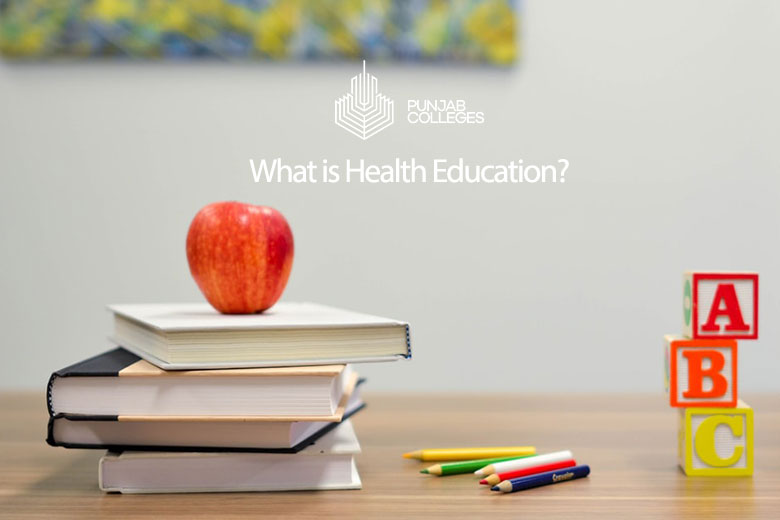What does health education mean?

Health Education is a process of education and participation of the individual, patient, and/or family. This education is provided to acquire knowledge, attitudes, and basic habits. It is for the advancement and defense of individual and collective health.
Its general objective is to promote healthy lifestyles in individuals (disease prevention), reduce behaviors, and risk situations. It is general knowledge of diseases, treatments, and corresponding care for each patient.
Health Education comprises consciously created learning opportunities. That represents a form of communication aimed at improving health literacy. It includes an emphasis on improving the population’s knowledge about health. It also provides the developing personal skills that lead to health education.
The informative and training activities are aimed at patients and their families. They are organized by the personnel of the Institute, who is responsible for the activity. They have no registration fee.
Education for health:
Health Education, as a tool for Health Promotion, will have to deal in addition to creating learning opportunities to facilitate behavioral changes or healthy lifestyles. So that people know and analyze the social, economic, and environmental causes that influence the health of the community.
This means overcoming the traditional role that has been attributed, fundamentally limited to changing the risk behaviors of individuals. It is becoming a powerful instrument for change.
It is a process that informs, motivates, and helps the population to adopt and maintain healthy lifestyles and practices, advocates the necessary environmental changes to facilitate these goals.
- Inform the population about health, illness, disability, and how individuals can improve their health.
- Motivate the population to achieve healthier habits.
- Help the population to acquire the knowledge, attitudes, and skills necessary to maintain a healthy lifestyle.
- Advocate for changes in the environment that facilitate healthy living conditions and positive health behavior.
- Promote education, training, and training of all Community Health Education Agents.
- Increase, through research and evaluation, knowledge about the most effective way to achieve the proposed objectives.
This EBE group of Health Education aims to be an open multidisciplinary network that shares the best possible evidence on the subject. Especially for the help and development of the best nursing care, in favor of improving the quality of life of our patients. patients.
Health Education based on scientific evidence always through the best scientific formats: systematic reviews, clinical trials, evidence synthesis.
For this purpose, the national and international databases of greater relevance in health care will be periodically reviewed to locate articles or research studies. It will be evaluated on things that address health education. If in all areas, they are paying special dedication to nutritional education, prevention of cardiovascular diseases, affective-sexual education, etc.
What is health education? why is it important?
Health education is a very important component to Strengthen and / improve healthy lifestyles (habits, customs, and behaviors) in men and women. It guarantees the proper use and maintenance of the drinking water systems and facilities for the disposal of excreta and garbage.
Health Education is oriented to favor lifestyles through the promotion, prevention, responsible attitudes, and habits exclusive to the subject and the context.
Why is health important? There are several benefits of having a healthy life, but the main one that we could name is that our body is freed from various forms of disorders and complications and, therefore, a longer life is obtained, without suffering any type of pain or pain. discomforts.
What is the aim of health education?
Does health education aim to provide people enough information about what is health education? Conveying its value to people so that they can understand the promotion and prevention of health. Tasks that the nurse performs as part of her work to improve the health determinants of the entire healthy and sick population. They allow the learning of life habits that prevent health problems.
What is an example of health education?
All the health-based campaigns aim to materialize all the hygienic ideas and methods that one can use to stay healthy. It is one example and way of providing health education. The Source of such education is not only this, it also includes the guidance provided to patients and students at the hospitals.
In this phase, the seriousness and magnitude of the problems and the behaviors that constitute a risk factor for these problems should be studied in depth. The severity and magnitude are studied so as not to fall into the error of trying to carry out an educational intervention for a non-existent problem.
This education is mainly provided to patients and pregnant women who got to take special care of themselves.
What is health education in nursing?
Health education is based on the promotion and prevention of health, tasks that the nurse performs as part of her work to improve the health determinants of the entire healthy and sick population. They allow the learning of life habits that prevent health problems.
Types of health education:
Types of health education are;
To provide proper guidance about your physical appearance. Usually, fat people or skinny ones get this education. From kids to older people, everyone must know what is health education? and why do they have to adopt a healthy lifestyle?
Health education is a process by which individuals and groups of people learn to behave in a way that favors the promotion, maintenance, or restoration of health.
Educating for health involves two fundamental factors: the person who educates and the person who learns, the latter, in ideal conditions, will also become an active agent of education for health.


